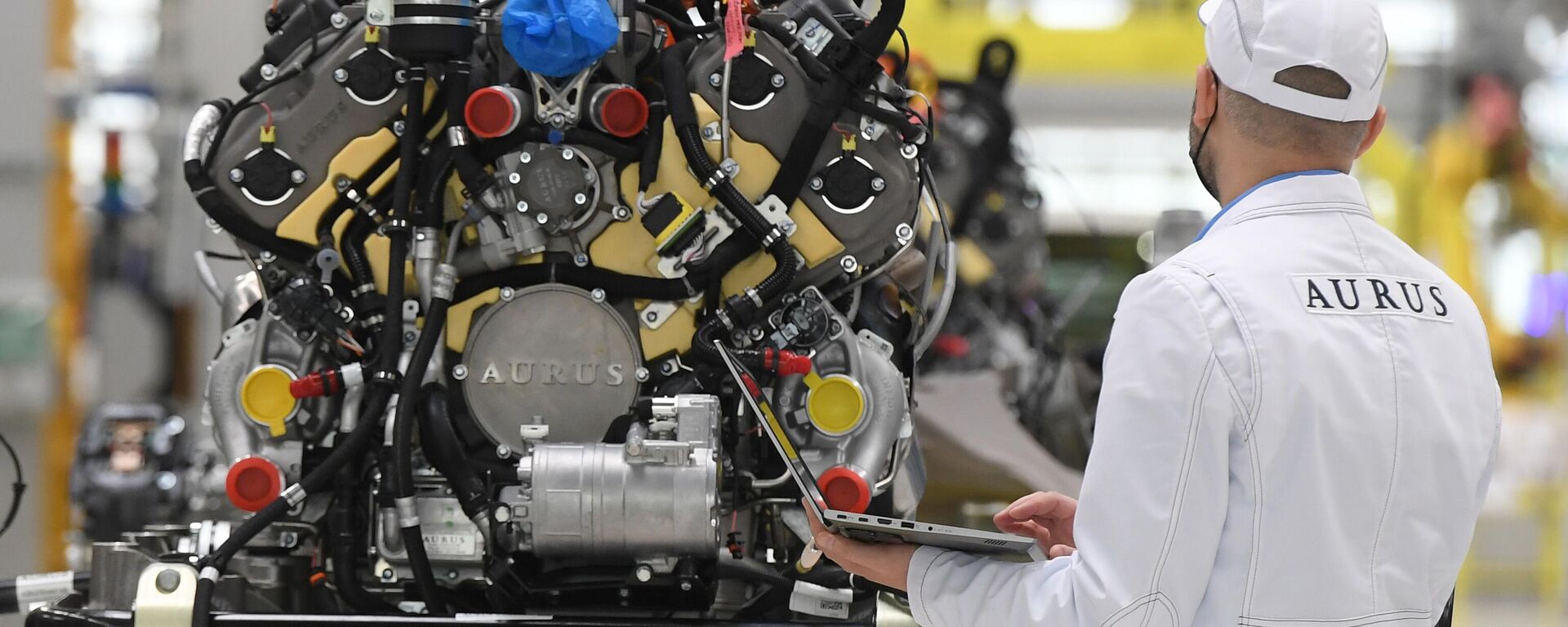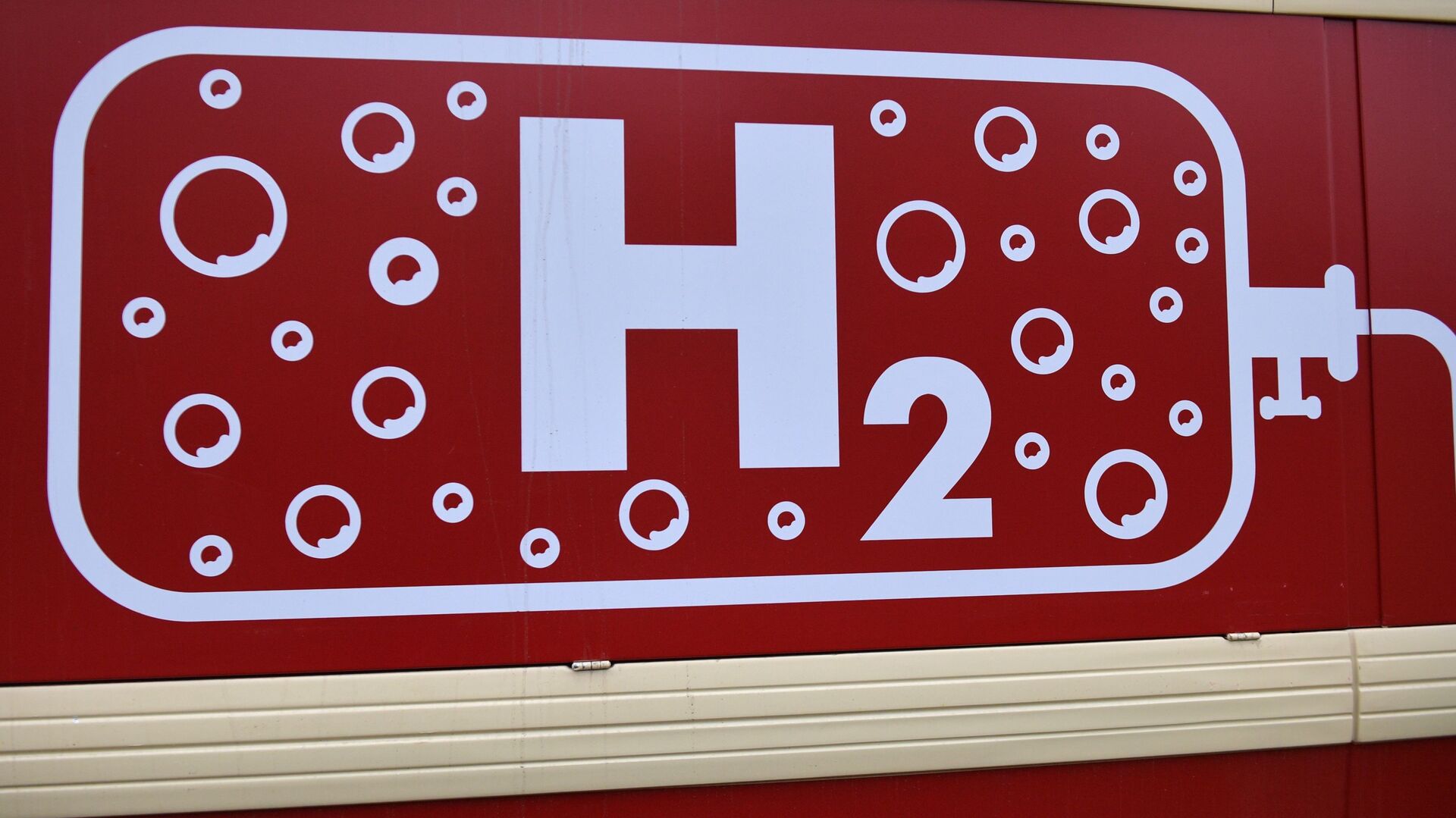https://sputnikglobe.com/20241007/russias-first-hydrogen-powered-ship-ecobalt-to-be-tested-in-october---developers-ceo-1120450755.html
Russia's First Hydrogen-Powered Ship 'Ecobalt' to Be Tested in October - Developer's CEO
Russia's First Hydrogen-Powered Ship 'Ecobalt' to Be Tested in October - Developer's CEO
Sputnik International
Russia's first domestically-built hydrogen-powered ship the "Ecobalt" will begin testing later this month, the head of the Krylov State Research Center said in an interview.
2024-10-07T00:48+0000
2024-10-07T00:48+0000
2024-10-07T00:48+0000
russia
krylov state research centre
ak bars
aliona savchenko
renat mistakhov
russian federation
newsfeed
russia
science & tech
https://cdn1.img.sputnikglobe.com/img/07e5/04/1d/1082761146_0:83:3349:1966_1920x0_80_0_0_a8b36a96e715d28ba9536534a739bd50.jpg
The Krylov Centre is the main developer of the latest ship designs, materials and technologies for the Russian Navy. According to him, the Krylov Centre developed this project together with partners, in particular, with the St. Petersburg Polytechnic University, and Ak Bars built it at the Zelenodolsk Gorky Shipyard according to the design of the Baltsudoproekt Central Design Bureau (the design bureau of the Krylov Center). Earlier, Renat Mistakhov, the head of the Ak Bars shipbuilding holding, told journalists that the main purpose of the prototype was to become a platform for creating and testing the technology, as well as for developing a universal functional module for a fuel cell power plant. One of the main advantages of fuel cell power plants, compared to traditional diesel engines, will be significantly lower noise and vibration levels, efficient use of fuel and high efficiency. For this purpose, tests and subsequent operation of the vessel will be carried out, Mistakhov noted.
https://sputnikglobe.com/20240208/russian-scientists-reveal-breakthrough-in-hydrogen-energy-fuel-1116671080.html
russian federation
russia
Sputnik International
feedback@sputniknews.com
+74956456601
MIA „Rossiya Segodnya“
2024
Sputnik International
feedback@sputniknews.com
+74956456601
MIA „Rossiya Segodnya“
News
en_EN
Sputnik International
feedback@sputniknews.com
+74956456601
MIA „Rossiya Segodnya“
Sputnik International
feedback@sputniknews.com
+74956456601
MIA „Rossiya Segodnya“
hydrogen powered boat, russian hydrogen power
hydrogen powered boat, russian hydrogen power
Russia's First Hydrogen-Powered Ship 'Ecobalt' to Be Tested in October - Developer's CEO
MOSCOW (Sputnik) - Russia's first hydrogen-powered vessel "Ecobalt" will begin testing in October 2024, Oleg Savchenko, the head of the Krylov State Research Centre, said in an interview with Sputnik.
The Krylov Centre is the main developer of the latest ship designs, materials and technologies for the Russian Navy.
"This is our joint work with Ak Bars. A pleasure boat called Ecobalt for 12 people with an electrochemical generator. This will be the first vessel in the Russian Federation with the first domestic electrochemical generator on hydrogen fuel. Totally import-substituted," Savchenko said.
According to him, the Krylov Centre developed this project together with partners, in particular, with the St. Petersburg Polytechnic University, and Ak Bars built it at the Zelenodolsk Gorky Shipyard according to the design of the Baltsudoproekt Central Design Bureau (the design bureau of the Krylov Center).
"We will start testing in October of this year. We want to show it to potential customers," Savchenko said.
Earlier, Renat Mistakhov, the head of the Ak Bars shipbuilding holding, told journalists that the main purpose of the prototype was to become a platform for creating and testing the technology, as well as for developing a universal functional module for a fuel cell power plant. One of the main advantages of fuel cell power plants, compared to traditional diesel engines, will be significantly lower noise and vibration levels, efficient use of fuel and high efficiency. For this purpose, tests and subsequent operation of the vessel will be carried out, Mistakhov noted.

8 February 2024, 17:15 GMT




